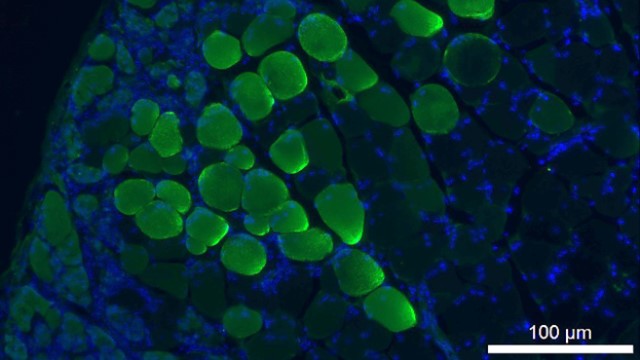
image credit: www.the-scientist.com
In a recent study, mice injected with the genetic sequence for a monoclonal antibody survived after inoculation with a life-threatening bacterial disease. This opens many doors for a possibly cheaper and faster method of delivering monoclonal antibody treatments to patients.
Ken Stover, a microbiologist at AstraZeneca subsidiary MedImmune, explains several advantages to this technique. “DNA is more readily manufacturable than protein antibodies,” he says, and so “the time to produce [a] drug may be quicker; DNA can hang around a while and continue to express the monoclonal antibody, hopefully at levels that are more sustainable.”
A. Patel et al., “An engineered bispecific DNA-encoded IgG antibody protects against Pseudomonas aeruginosa in a pneumonia challenge model,” Nature Communications, 8:637, 2017.
C. Offord et al., “DNA-Delivered Antibodies Fight Off Lethal Bacteria Infection.” The Scientist, 3 Oct 2017.
